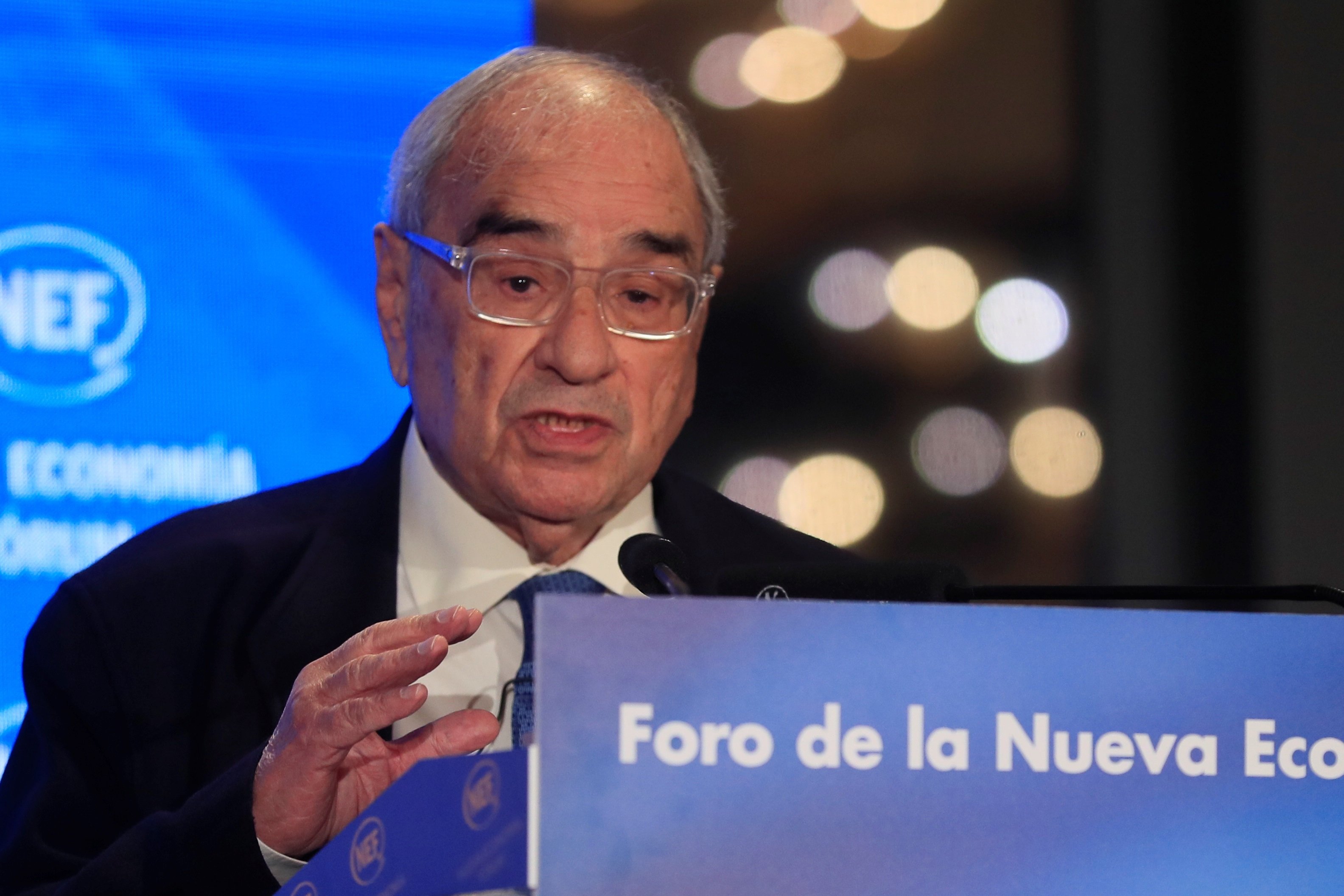Argentinian judge Maria Servini tried to prosecute him for four counts of murder during Spain's post-Franco Transition, specifically cases in 1977 in Vitoria and in 1978 in Pamplona. But she did not succeed and the proceedings were revoked from above. Today, former Spanish deputy prime minister and interior minister Rodolfo Martín Villa has made a reappearance, and he had an air of satisfaction about him. The former UCD politician acknowledged that someone could come hold him politically and criminally "responsible" for those deaths. But in the same way, he also made it clear that he is quite realxed about the matter: "If I haven't lost a minute of sleep in all these years, I think I can handle it with peace of mind." Upon arrival at today's event, he was jeered by a group of relatives of victims of the Franco dictatorship.
The former minister, accused of crimes such as torture and homicide took part in a breakfast organized by Nueva Economía Fórum, which served him perfectly as a re-presentation in public. The issue of the Argentinian complaint came up and Martín Villa stated ironically that he "could be held politically responsible, of course, and even criminally responsible for those deaths." He said: "It could even be possible that I, in a moment of madness, could have been the material perpetrator of those deaths." Having said all that, he denied being part of, as the Argentinian complaint says, a "government during the Spanish Transition that ordered a systematic, deliberate, and generalized plan to terrorize those Spaniards who were in favour of a democratic government."
Thus, the former interior minister described the Argentinian judiciary's attempt to prosecute him for crimes against humanity as a "Kafkaesque spectacle, organized from here [Spain]" and not a rigorous judicial procedure. And he wanted to make it clear that he had always put himself at the disposal of the Spanish judiciary, even though he was not obliged to. He complained of how the "presumption of guilt" prevailed, rather than the presumption of innocence.
Rodolfo Martín Villa defended the Spanish Transition, which he described as "one of the best periods in our history". And he retorted that his "public enemy" was "terrorism." In this context, he also railed against the current Spanish government's planned new law of democratic memory, which according to him, in some points, "is very similar to the accusations made in the Argentinian complaint." He asserted that it tries to "sum up the Transition by saying that it was a continuation of the dictatorship or even that there were plans with hateful intentions during the Transition."
All this comes a month after the Argentinian judiciary overturned the decision of judge Maria Servini to prosecute the former minister for alleged crimes against humanity during the latter days of the Franco regime. However, it considered the appropriate action was not to completely close the case yet. In a ruling by the Second Chamber of the Federal Criminal and Correctional Chamber of Argentina, the court noted that there is no "direct or indirect, indicative, miscellaneous, and/or unequivocal proof that is compatible."
In recent years, former Spanish PMs Felipe González, José María Aznar, José Luis Rodríguez Zapatero and Mariano Rajoy have all come out in his defence.

